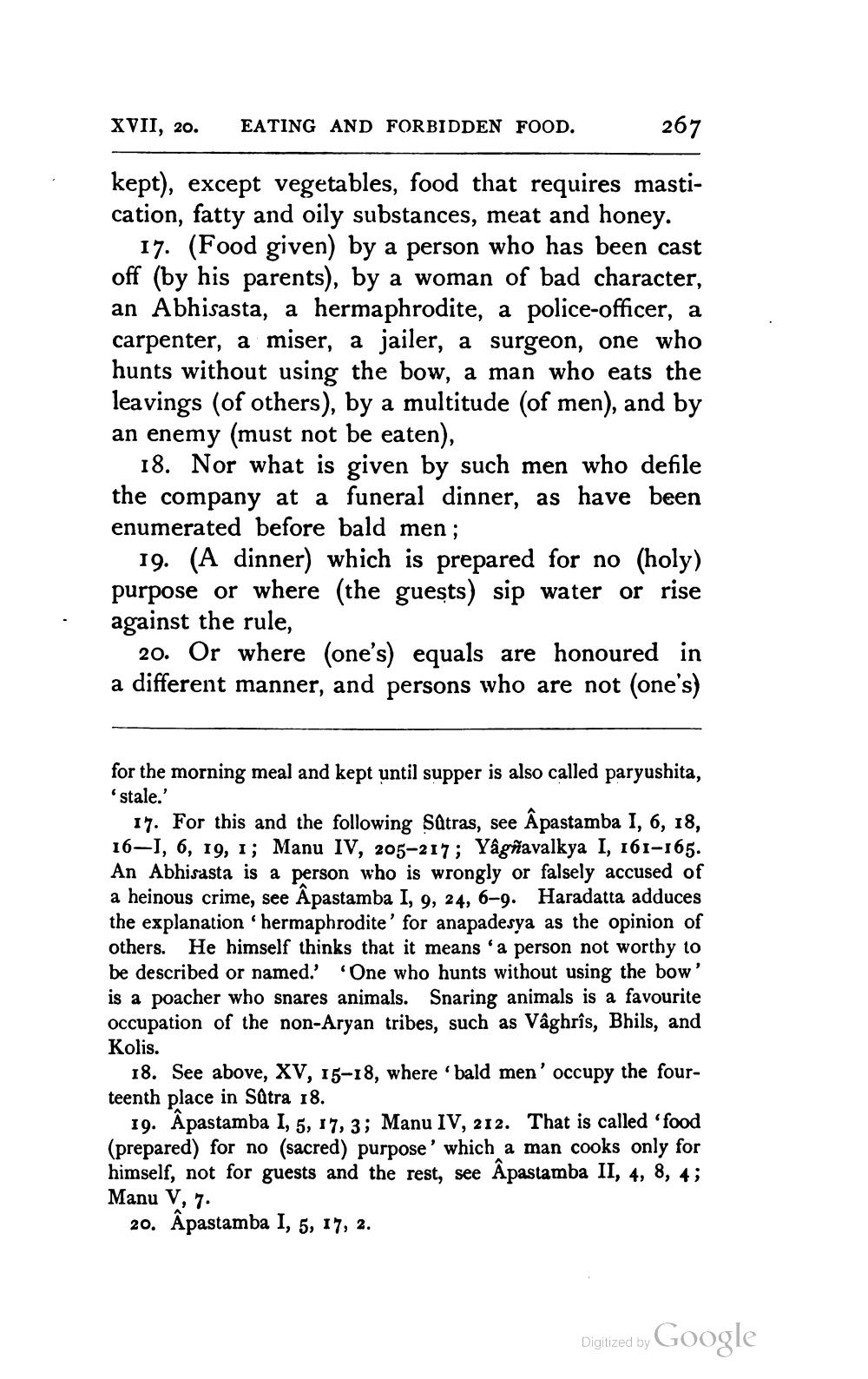________________
XVII, 20.
EATING AND FORBIDDEN FOOD.
267
kept), except vegetables, food that requires mastication, fatty and oily substances, meat and honey.
17. (Food given) by a person who has been cast off (by his parents), by a woman of bad character, an Abhisasta, a hermaphrodite, a police-officer, a carpenter, a miser, a jailer, a surgeon, one who hunts without using the bow, a man who eats the leavings (of others), by a multitude (of men), and by an enemy (must not be eaten),
18. Nor what is given by such men who defile the company at a funeral dinner, as have been enumerated before bald men;
19. (A dinner) which is prepared for no (holy) purpose or where (the guests) sip water or rise against the rule,
20. Or where (one's) equals are honoured in a different manner, and persons who are not (one's)
for the morning meal and kept until supper is also called paryushita, 'stale.'
17. For this and the following Sætras, see Âpastamba I, 6, 18, 16–1, 6, 19, 1; Manu IV, 205-217; Yâgñavalkya I, 161-165. An Abhisasta is a person who is wrongly or falsely accused of a heinous crime, see Âpastamba I, 9, 24, 6–9. Haradatta adduces the explanation 'hermaphrodite' for anapadesya as the opinion of others. He himself thinks that it means 'a person not worthy to be described or named. One who hunts without using the bow' is a poacher who snares animals. Snaring animals is a favourite occupation of the non-Aryan tribes, such as Vâghrîs, Bhils, and Kolis.
18. See above, XV, 15-18, where ' bald men'occupy the fourteenth place in Sūtra 18.
19. Âpastamba I, 5, 17, 3; Manu IV, 212. That is called 'food (prepared) for no (sacred) purpose' which a man cooks only for himself, not for guests and the rest, see Apastamba II, 4, 8, 4; Manu V, 7.
20. Âpastamba I, 5, 17, 2.
Digitized by Google




